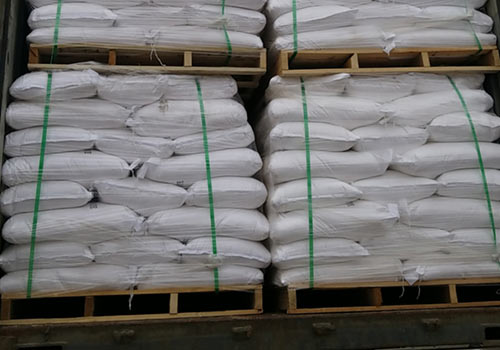Introduction:

In the realm of construction, optimizing time and resource utilization is paramount. One crucial aspect that directly affects construction efficiency is the use of concrete admixtures. Among these, Naphthalene Sulphonate-based substances have gained significant prominence. In this blog post, we will explore the benefits, applications, and immense potential of Naphthalene Sulphonate for enhancing construction efficiency.
Understanding Naphthalene Sulphonate:
Naphthalene Sulphonate, more specifically Sodium Naphthalene Sulphonate, is a versatile chemical compound frequently used in the construction industry. It acts as an admixture that enhances the workability and performance of concrete mixtures. By reducing water content, these admixtures improve the concrete's plasticity, strength, and durability, allowing for better construction outcomes.
Applications in Construction:
1. Improved Workability: Naphthalene Sulphonate is a dispersing agent capable of reducing the intermolecular forces between cement particles. This results in increased fluidity and workability of the concrete mix, making it easier to pour, shape, and maneuver during construction.
2. Water Reduction: These admixtures decrease the water-cement ratio, enabling a reduction in water content without compromising the concrete's integrity. This property not only enhances the strength of the concrete but also reduces the drying time, accelerating the construction process.
3. Enhanced Strength and Durability: Naphthalene Sulphonate admixtures facilitate the generation of a dense and well-compacted concrete structure. This leads to improved compressive strength, reduced permeability, and enhanced resistance against adverse environmental factors such as freeze-thaw cycles, chemical attacks, and abrasion.
4. Shrinkage Control: Incorporating Naphthalene Sulphonate in concrete mixtures mitigates the risk of plastic shrinkage and drying shrinkage. By preventing excessive water loss, the admixture helps maintain the desired volume and minimizes the formation of cracks, ensuring long-term structural integrity.
5. Sustainable Construction: Naphthalene Sulphonate-based admixtures contribute to sustainable construction practices. By reducing water usage and improving the concrete's durability, these products promote eco-friendly building processes, minimize resource consumption, and extend the lifespan of the constructed infrastructure.
The Importance of Sodium Gluconate:
In addition to Naphthalene Sulphonate, Sodium Gluconate is another important chemical compound utilized in the construction industry. Sodium Gluconate is a chelating agent that functions as a cement set retarder. It slows down the hydration process, enabling better and more controlled setting times, particularly in hot climates.
Benefits of Sodium Gluconate:
1. Extended Workability: Sodium Gluconate-based retarders prolong the fresh state of concrete, providing additional time for placing, pouring, and finishing, especially in large-scale construction projects. This ensures uniformity and facilitates a smoother construction process.
2. Heat Reduction: In high-temperature environments, Sodium Gluconate acts as a cooling agent by reducing the heat released during cement hydration. This prevents rapid setting and early-age cracking, enabling contractors to work efficiently under challenging conditions.
3. Enhanced Bonding: The controlled setting time facilitated by Sodium Gluconate allows for improved bonding between fresh and hardened concrete, ensuring superior cohesion and mechanical properties.
Conclusion:
In summary, Sodium Naphthalene Sulphonate and Sodium Gluconate are influential chemical compounds that play a vital role in enhancing construction efficiency. By improving workability, reducing water content, enhancing strength and durability, and controlling shrinkage, they contribute to the production of high-quality concrete. The applications of these admixtures extend beyond the construction industry, promoting sustainability and resource conservation. Harnessing the potential of Naphthalene Sulphonate and Sodium Gluconate in construction practices leads to safer, longer-lasting, and more environmentally friendly infrastructure.
Keywords: Naphthalene Sulphonate, construction efficiency, concrete admixtures, workability, water reduction, strength, durability, shrinkage control, sustainable construction, Sodium Gluconate, chelating agent, retarder, extended workability, heat reduction, enhanced bonding, high-quality concrete.
